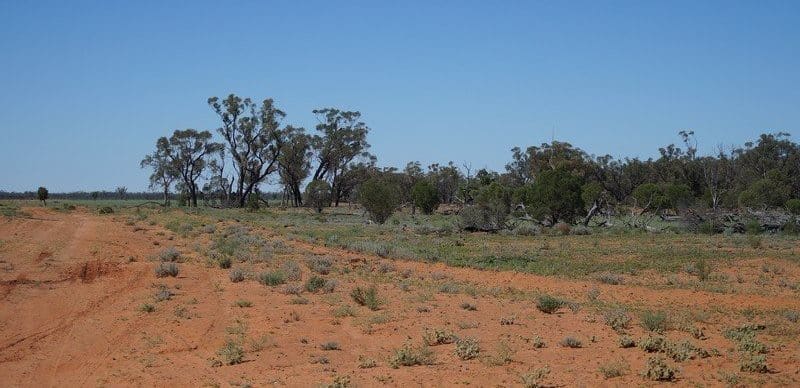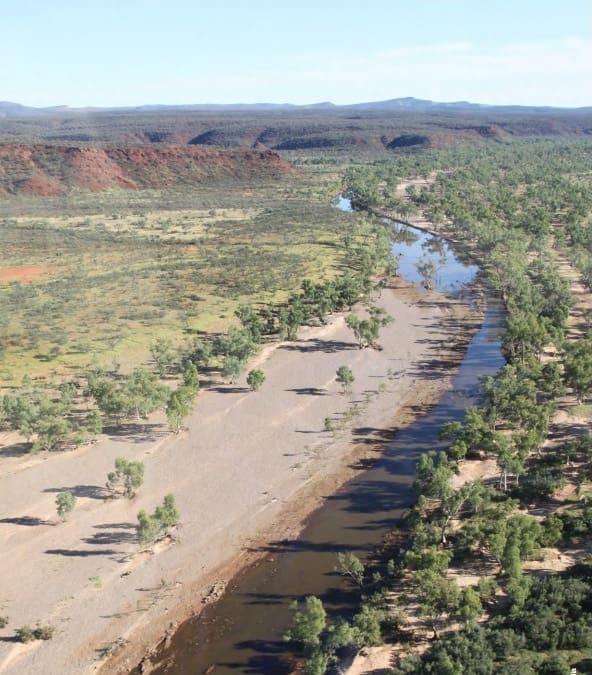SHEEP and cattle property sales in southwest Queensland have been extremely quiet, as dry conditions have taken their toll and many potential buyers have looked further east at higher value and more productive country.
But according to some experts there are steps that landholders in western Queensland and New South Wales’s mulga country can take to make their property more attractive to buyers.
Traditionally, mulga country, which stretches from north-western NSW to south-west Queensland, is used for running breeding cattle and sheep, due to its low and often unpredictable rainfall. It is distinct from neighbouring regions, such as the brigalow belt to the east and the Barkly Tableland to the north, both of which have better, more fertile soils and pastures.
Property sales in the mulga region have been slow, but there is growing interest from landholders in carbon farming and its potential impact on future property transactions in the region.
According to Carbon Farmers of Australia, carbon farming is simply farming in a way that reduces Greenhouse Gas emissions or captures and holds carbon in vegetation and soils.
“Carbon Farming can range from a single change in land management, such as introducing no-till cultivation or grazing management, to a whole-of-farm integrated plan which maximises carbon capture and emissions reduction. Carbon farmers have many practices to choose from to develop their plan,” the group says.
Strong local uptake
Local property agent Nick Dunsdon from Ruralco Property GDL, servicing the Cunnamulla and St George districts of Queensland’s southwest, is urging locals to investigate carbon farming.
“I believe the income from carbon credits could be a significant boost to drought-stricken cattle producers in many cases. I know 15 landholders who have taken up carbon farming over the past two years. While it is still early days, there are many projects in place and many more underway,” Mr Dunsdon said.
While there are a number of different methodologies, he said managed low mulga regrowth (natural regeneration) is being taken up by most landholders in the area because it’s earning them the most credits.
However, Mr Dunsdon is not sure what impact carbon farming will have on property values.
“That’s the unknown. There hasn’t been a cattle property sale with a carbon encumbrance on it. I think buyers should look at properties that have included carbon farming as an opportunity. They have contracts in place that at current market values are returning over 10 percent per annum cash return for the first 10 years. That is an excellent return.”
Another property agent, Jason Hartin from Hartin Schute Bell, Narromine is currently advertising adjoining blocks Kywong and Gilnooki, on the NSW/Qld border near Cunnamulla as a “possible investment opportunity for carbon farming.”
The 28,500ha properties (note: Kywong should not be confused with another property of the same name, currently being marketed near Winton by GDL) are a mix of heavy black, red and grey clay loam soils, mulga and flood-out country.
Carbon projects can lift property value
Mr Hartin said there was certainly an opportunity for carbon farming in that area.
“The properties have adequate timber and soils for carbon farming. A study on soil sequestration shows they fall into a category of a reasonable return. So, there is an opportunity for an investor to generate an additional source of income from that property.”
Mr Hartin believes carbon farming is an asset that is not yet clearly understood or appreciated. “I know some landholders who have sold their farm, or part of it, to carbon farming, and they have reaped the benefits.”
Also, he is confident carbon farming will lift a property’s value. “Carbon credits give landholders another avenue to generate money. While it is difficult to estimate, I believe it could lift a property’s value by between a 10 and 18 percent, depending on location.”
Nick Dunsdon said it was important to note that properties with carbon contracts must be sold with the encumbrance included.
“You can’t cancel a carbon contract when you sell. So, a buyer must be aware that the arrangements continue post-sale,” he said.
Mr Dunsdon is not sure carbon farming will improve a property’s value, but he believes it will certainly make a property more saleable.
“The carbon price is locked in for the first 10 years of a 25 year contract. After that, it returns to auction. The carbon price is floating, so the value may go up or it may go down. It is a risk, but if a buyer has bought a property knowing there is a 10 percent cash return over 10 years and it has helped pay off the debt, that’s not a bad result.”
Mr Dunsdon suggested carbon farming would appeal to a commercial buyer who could see overall returns from the property, rather than a traditional beef producer buyer looking for a drought-resistant mulga block to run stock.
He said drought-stricken landholders should consider the potential returns.
“It is lucrative. That’s why more and more landholders in south-west Queensland are looking at it. The returns are getting producers out of trouble during dry times and for sellers, this should generate significant interest if marketed correctly.”
Henbury among early failures
Not all early carbon sequestration projects have been successful, however.
RM Williams Agricultural Holdings paid $13 million for Central Australian holding Henbury Station in 2011 for carbon farming purposes – one of the biggest such projects in Australia – before the project collapsed spectacularly.
Henbury re-sold for only $6-$8 million in June 2014 – about half its original value.
The Federal Government injected about $9 million into the original investment as a ‘pilot’ project for carbon sequestion, as explained in this earlier article.





HAVE YOUR SAY